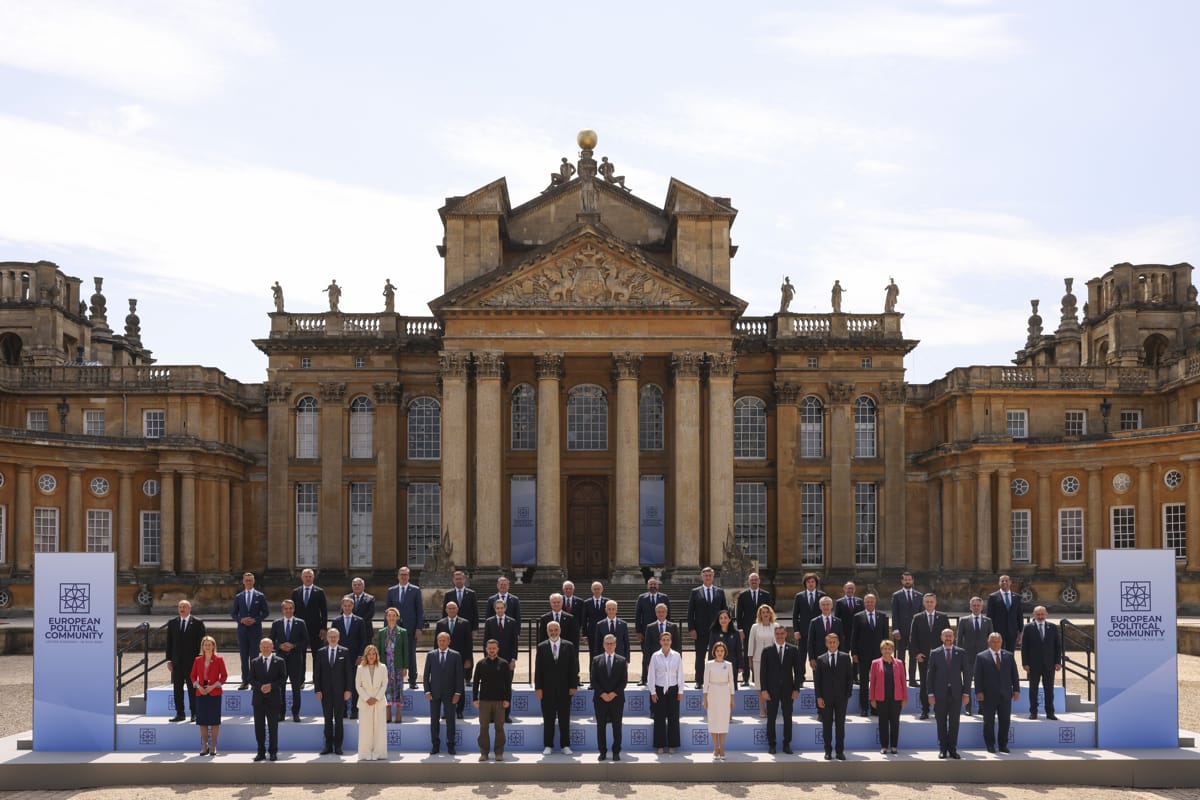After a cold and wet start to the summer, the United Kingdom basked in glorious sunshine last week as British Prime Minister Keir Starmer welcomed European leaders to Blenheim Palace for the fourth Summit of the European Political Community (EPC). Following almost immediately on from the NATO summit in Washington, where the newly elected Starmer was mobbed by centre-left leaders wanting to know the secret to a landslide victory, the British PM would be forgiven for being in a sunny mood, despite England’s loss in the Euros final.
He would have been further cheered by the feedback from the UK media and civil service. One senior foreign policy official described the EPC meeting to me as “the most successful UK-hosted foreign policy summit since Blair”. And, aided by a free ice cream truck for attending journalists, the coverage of the summit outcomes was broadly positive.
The EPC proved it may offer an alternative to the stultifying rounds of international defence and security meetings.
Yet Starmer’s opening address was far from rosy, telling the assembled leaders that they were meeting “as a new storm gathers over our continent”. Set up in 2022 following a proposal by French President Emmanuel Macron in response to Russia’s invasion of Ukraine, the EPC includes all European countries except Belarus and Russia, along with participants from the Council of Europe, the European Union, NATO, and the Organisation for Security and Cooperation in Europe (OSCE). Summits are held twice yearly, with the “Spring” summit hosted by a non-EU member state and the “Autumn” meeting hosted by one of the EU’s 27 member states.
Contrary to most foreign policy summits, the EPC does not seek consensus in the form of a tersely negotiated and verbose communiqué. Rather, the summits are designed explicitly as a chance for Europe at its broadest, from Ireland to Ukraine and Iceland to Turkey, to come together, network, and discuss the common challenges that face leaders across the continent.
Host nations set the summit agenda, with previous meetings having focused on artificial intelligence, critical facilities, and countering disinformation. The UK summit focused on Ukraine, energy security, and migration, and despite being set up and primarily organised by former UK Prime Minister Rishi Sunak, it provided Starmer with an invaluable platform as he attempts to repair relationships across Europe and rebuild Britain’s reputation as a reliable partner.

In this, Starmer had another parting gift from Sunak. The Windsor Framework, agreed in February 2023, removed one of the biggest irritants between the United Kingdom and the European Union by helping reset the relationship with Northern Ireland, paving the way for positive discussions at Blenheim Palace.
Although foreign policy realists will scoff, there is a school of thought in international relations that security and defence alliances are often based on “good vibes”. If judged by that criterion, Starmer’s EPC summit was an unqualified success, with smiling leaders enjoying strawberries and cream with King Charles III while surrounded by Churchill memorabilia (the UK’s famous wartime prime minister was born at Blenheim).
But with a resurgent far right across Europe, not to mention the possibility of a second Trump presidency, positive discussions and friendly handshakes in the sunshine will not be enough to ensure European leaders align on the critical challenges facing the continent.
European leaders will need to move further and faster on common defence and security policy than they have previously demonstrated is possible.
Here again, the EPC proved it may offer an alternative to the stultifying rounds of international defence and security meetings. By not forcing leaders, and their civil service advisers, to spend weeks haggling over the precise wording of a formal statement, the EPC saw broad agreement on the need for Europe to become more self-sustaining on defence spending, with Prime Minister of the Netherlands Dick Schoof telling the summit “European countries must stand on their own legs more than ever”.
The talks also saw movement on key requests from Ukraine’s President Volodymyr Zelenskyy, including a commitment to crack down on Russia’s “shadow fleet” of oil tankers used to break sanctions, and an agreement for an operational command to be active in Germany from September to ensure better coordination from NATO allies on when and where Ukraine is able to deploy supplied weapons.
With the situation in Ukraine mired in a bloody stalemate, and the current rotating EU president, Hungary’s broadly pro-Russian Prime Minister Victor Orban, and US presidential candidate Donald Trump both pushing for a negotiated solution, European leaders will need to move further and faster on common defence and security policy than they have previously demonstrated is possible.
To paraphrase Denis Denuto in the classic Australian film The Castle, in order to achieve the UK’s aims on the big security and defence challenges facing Europe, Starmer and his team will need to demonstrate that the vibe really can be turned into concrete policy outcomes.

